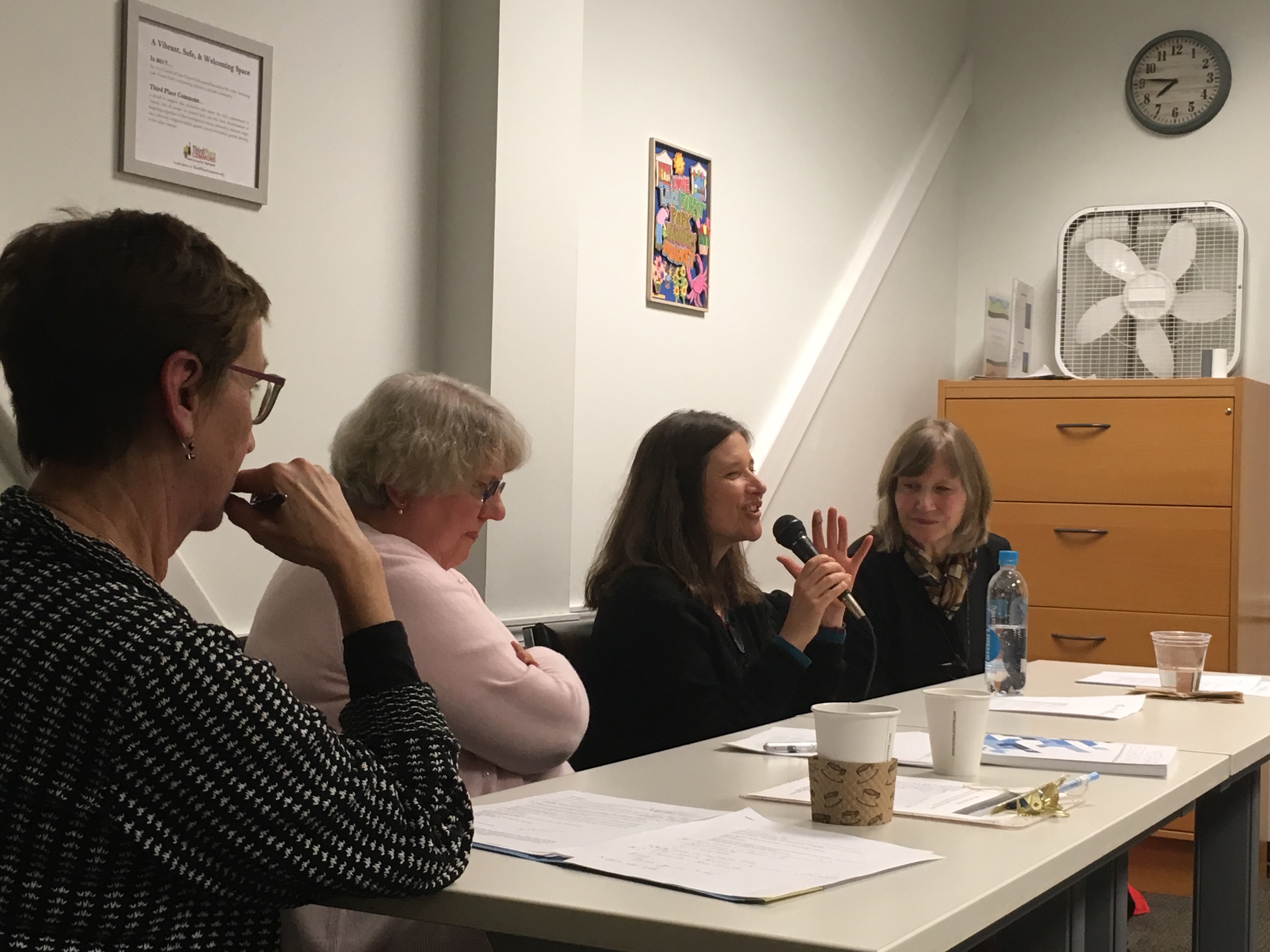At our March meeting, we tackled the array of options for marketing books in a 60-minute blitz! One thing that became abundantly clear is that authors need to make choices about where to focus their time, energy – and budget.
Two overarching themes were that first, you need to write the best book you can, and second, that being an author is being in business, and you have to do marketing. That said, the consensus was that you will be most effective if you focus on the tools that you most enjoy (or have the least resistance to).
Another basic is that you need to develop a platform before you start marketing: think of it as what you “stand on” to promote your books. This can range from being a member of Sisters in Crime to having a social media presence. All agreed though that a website is essential. “It is the business card of today,” said publisher Jennifer McCord.
Then marketing is the specific actions you take to promote your books from book trailers, social media posts, giveaways, “bling” (postcards, bookmarks, other treats), readings, solicited reviews, sales, advertising, conference participation, and more.
Jennifer McCord led off the session with an aspect of marketing that is critical today. That is developing the right metadata for your book. Essentially metadata is the key words and descriptions (bio, etc.) that help publishers, booksellers, and readers define – and find – your book. She pointed out that there are some 40 different e-book retailers today, and they each require the metadata to be presented in a slightly different way. This is a hugely important task for publishers at every level from indies to traditionals, though indies may only deal with a few retailers, such as Amazon.
The two authors on the panel, Tracy Weber and Alice K. Boatwright, work with traditional and small press publishers respectively. Traditional publishers provide much higher visibility and strong distribution, but Tracy pointed out that she has no control over pricing and the lag time in receiving sales data makes it difficult to assess the success of a specific marketing effort – such as a BookBub featured deal. Other tools that have worked well for her are her website and newsletter, where she offers a variety of giveaways. Her most successful tools have been her use of Facebook and her “street team” of fans across the country who not only share her posts but also go out in person to promote her books. She has discovered that her readers are dog lovers, so she also uses her dog, Ana, to good effect in her marketing.
Alice’s publisher allows her to control the price of her e-books, so her most effective tool has been sales promoted through BookBub and other ebook promotion companies, such as Kindle Nation Daily. She also uses social media, and has seen her community build through Facebook and Twitter. She has used ads, boosted posts, events, etc, and points out that authors should not neglect to promote to any community they are part of – for example, to spread the word about their books via alumni publications or organization newsletters.
All three panelists spoke about building connections and knowing your audience.
Building connections, they pointed out, means personalizing the message of your marketing. But this brought them to an ever-important caveat — what you are sharing doesn’t have to be your whole personal life, just your public persona. Be organized and intentional about it. Draw your readers in, as Tracy does with Ana Pup, and get them to see you as a person, not just a writer, and they will feel more compelled to stick with you and share your work with other readers.
Finally, they stressed, that if one approach doesn’t work very well, move on and try something different until you find the mix of marketing activities that works for you and your books.
 Many thanks to Tracy Weber, Alice K. Boatwright, and Jennifer McCord for sharing their insights into marketing for authors. Moderator Martha Crites deftly guided the panelists through the vast array of marketing options available to authors today.
Many thanks to Tracy Weber, Alice K. Boatwright, and Jennifer McCord for sharing their insights into marketing for authors. Moderator Martha Crites deftly guided the panelists through the vast array of marketing options available to authors today.
2 thoughts on “Recap: 20 Ways to Market a Mystery”
Comments are closed.